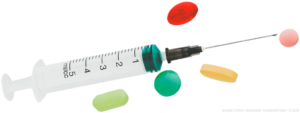 Results of the AURORA 2 Clinical Trial
Results of the AURORA 2 Clinical Trial
Background & objectives: Voclosporin is a novel calcineurin inhibitor (CNI) approved in the United States and, more recently, Europe for the treatment of adult patients with active lupus nephritis in combination with background immunosuppression. Voclosporin is associated with a favorable metabolic profile with regard to lipids and glucose, and a predictable pharmacokinetic profile resulting in no need for the therapeutic drug monitoring required of other CNIs.
AURORA 2, a double-blind, phase 3 study, evaluated the long-term safety, tolerability, and efficacy of voclosporin compared to placebo in patients with lupus nephritis receiving an additional two years of treatment following completion of the one-year AURORA 1 study. Together, AURORA 1 and 2 represent the largest and longest placebo-controlled clinical program evaluating a CNI-based treatment regimen for lupus nephritis.
Methods
Patients enrolled in AURORA 2 continued to receive the same treatment randomly assigned in AURORA 1, in combination with mycophenolate mofetil and low-dose glucocorticoids. Safety evaluation included assessments of adverse events and biochemical and hematological laboratory assessments during the study. Efficacy was assessed by achievement of complete renal response and partial renal response, good renal outcome, renal and non-renal flare, and changes in urine protein creatinine ratio, estimated glomerular filtration rate (GFR), and serum creatinine.
Results
A total of 216 patients enrolled in AURORA 2. Treatment was well tolerated, with 86.1% of participants completing the study and no unexpected safety signals. Adverse events occurred in 86% of patients in the voclosporin group and 80% of patients in the control group, with an adverse event profile similar to that seen in AURORA 1, albeit with reduced frequency. Adverse events of both GFR decrease and hypertension occurred more frequently in the voclosporin group than in the control group. Mean corrected estimated GFR was within the normal range and stable in both treatment groups. Improved proteinuria persisted across three years of treatment, leading to more frequent complete renal responses in patients treated with voclosporin.
Conclusion
Data demonstrate the safety and efficacy of long-term voclosporin treatment over three years of follow-up in patients with lupus nephritis. Saxena et al. propose that the rapid renal response achieved with voclosporin treatment has long-term benefits, supported by stable kidney function over the three-year treatment period. Overall, three-year data provides further support for the use of voclosporin with mycophenolate mofetil and low-dose glucocorticoids for the treatment of lupus nephritis.
For complete details, including source material, refer to the full study.
Excerpted and adapted from:
Saxena A, Ginzler EM, Gibson K, et al. Safety and efficacy of long-term voclosporin treatment for lupus nephritis in the phase 3 AURORA 2 clinical trial. Arthritis Rheumatol. 2024 Jan;76(1):59–67.


